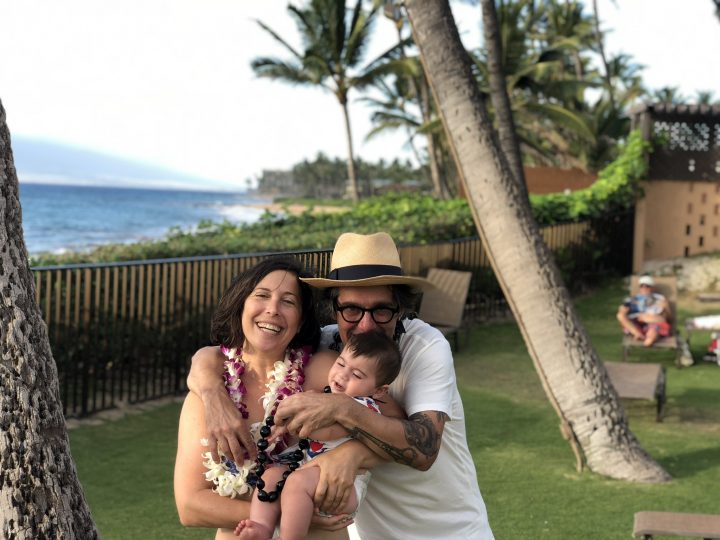Vancouver resident Rachel Smith isn’t waiting for a life partner to start a family.

Smith, like many other Canadian women across the country, is choosing a path of single parenthood by paying thousands of dollars to freeze her eggs in the hopes of becoming a mother one day.
“I want a child and I am doing what I can to make that happen and make it be on my terms and when I want it to be,” Smith said.
WATCH: Understanding the process of egg freezing from a fertility expert

Smith was 35 when she and her husband divorced after 17 years of marriage. After a couple of years of being single, she felt her biological clock ticking.
“I felt age creeping up on me,” Smith said. “Then I thought maybe I should start seriously dating. Then I realized I wasn’t interested in dating. I was interested in having a baby.”
Marrying a man just to get pregnant is not an option for Smith who has wanted a child since she was five years old.
So-called “social egg freezing” is growing in popularity. While there are no national comprehensive statistics, Vancouver’s Olive Fertility Centre says it has seen an increase of 1542 per cent in the number of women freezing their eggs from 2013 to 2018.
- B.C. 2026 budget ‘neither’ big cuts nor tax increase, minister says
- Former Conservative leader John Rustad says he’s not running for his old job
- Parts of B.C.’s South Coast set to see snow-rain mix with ‘rapidly changing’ travel conditions
- Survivor of one of Canada’s first school shootings reflects on Tumbler Ridge grief
The Pacific Centre for Reproductive Medicine, with clinics in Vancouver and Edmonton, reported a 180 per cent increase in the number of women freezing their eggs from 2017 to 2018.

Get weekly health news
According to the latest Statistics Canada report, in 2016 more babies were born to Canadian women over the age of 35 than women in their early 20s. But starting a family later in life comes with the increased risk of infertility.
Dr. Niamh Tallon, a fertility specialist at Olive Fertility, said a majority of women freezing their eggs at her clinic do so “primarily not related to career,” but because they haven’t found a partner.
As women age, the quantity and quality of their eggs decline, Tallon said, which leads to a higher rate of infertility and more frequent miscarriages.
When it comes to fertility, 40 is not the new 30, Tallon says.
“Our eggs are exactly as old as we are,” she said. “We want women to know there is an option for them if they want to preserve their fertility when their eggs are young and healthy, in case they want to get pregnant at a later time.”
Natalie Grunberg, a Victoria entrepreneur and teacher, had her eggs frozen at 37. On her 40th birthday, she decided to use those eggs to get pregnant with the support of her family.
She soon met a man who was supportive of her chosen path of single motherhood.
“It’s a little ironic but he did meet me at a stage where I was planning on being a single mom and he thought that was pretty amazing,” she said. “We ended up falling in love.”
As Grunberg’s pregnancy progressed, her relationship with Philip Ferreira flourished. He proposed when she was seven months pregnant and now they are parents to baby Arieh.
But Grunberg wants women to know they don’t need a man to have a family.
WATCH: Egg freezing FAQ

While there is no guarantee of success, Tallon said egg freezing can provide hope for future pregnancy.
The process of egg freezing is similar to traditional in vitro fertilization (IVF). It involves injecting medications that stimulate the growth of eggs, which can be harvested. Instead of fertilizing the eggs with sperm, they are frozen unfertilized and stored until a woman is ready to conceive.
When the woman decides she’s ready, the eggs are thawed and fertilized. If successful, viable embryos will then be transferred into the uterus.
Grunberg feels empowered by her choice to freeze her eggs. She believes she’s in control of her own reproductive system and hopes to create her own family — no longer being on any man’s schedule. But it doesn’t come for free.
WATCH: Why more women are freezing their eggs

Social egg freezing is not covered by government health plans. It costs approximately $7,000 for an egg freezing cycle, plus the cost of drugs, which can range from $3,000 to $5,000. The entire procedure, including hormone injections, takes about three weeks. Egg storage fees around $300 per year and IVF treatment is around $6,000.
Grunberg said she’s disappointed in the lack of coverage and believes that society needs “to get more political about women’s rights to have a family.”
Smith says she speaks openly about her egg freezing with everyone, including servers and cashiers, hoping to create more awareness about female fertility and the choices women can make.









Comments
Want to discuss? Please read our Commenting Policy first.